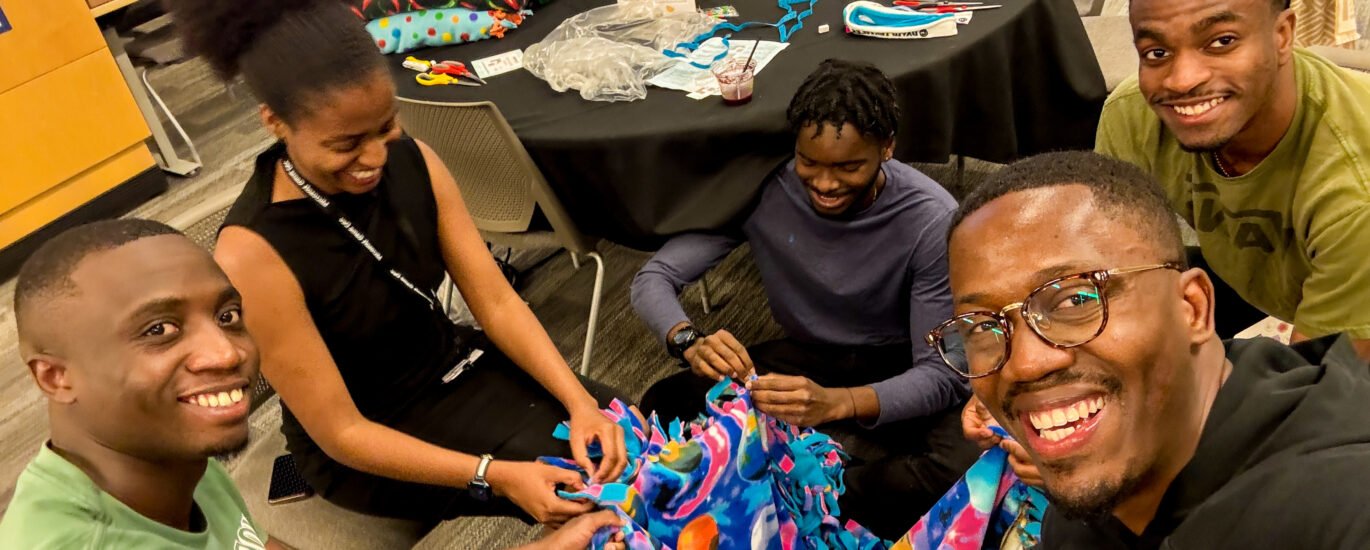


As part of the 2025 Microsoft’s Intern Celebration Week, we (all the interns in Puget Sound) got to volunteer at Seattle Children’s Hospital.
We made fleece blankets for the kids at the hospital.
It was, oddly, the most exciting event of the week for me. It brought me back to the reason I build.
I’m six weeks into my internship with Microsoft Xbox, working within the Developer Acceleration Program.
I’ve spent this time managing weekly operations, coordinating internal events, and supporting executive communications for senior leadership — including Sarah Bond.
The learning curve has been steep, but the clarity has been sharper.
I came here with intention: to gain strategic insight at the highest levels of tech.
To understand how platforms scale.
How systems are built — and who they’re built for.
Every day, I’m learning how to make those systems work better.
The Microsoft Employee Giving Program is a year-round initiative that enables employees to support causes they care about through both financial contributions and volunteer service. Established in 1983, the program allows Microsoft employees to donate to thousands of eligible nonprofit organizations worldwide. For every dollar donated, Microsoft provides a dollar-for-dollar match. For every hour volunteered, the company donates $25 to the nonprofit supported — creating a dual-impact model that values both time and money.
The program is open to all full-time Microsoft employees globally, with most giving activity concentrated in the United States. Employees can contribute through payroll deduction, one-time gifts, or event fundraising. Volunteer hours are tracked through an internal portal, and matching funds are distributed directly to the approved nonprofits. Microsoft also organizes company-wide giving campaigns, including the annual October Giving Month, which brings together employees across teams, locations, and disciplines to raise funds and awareness for various causes.
The Giving Program is coordinated by Microsoft Philanthropies in partnership with vetted nonprofit platforms and local giving partners. Its aim is to institutionalize generosity by making it easy, accountable, and integrated into workplace culture. Since inception, the program has raised over $2 billion for nonprofits and continues to serve as a global benchmark for corporate employee engagement in social impact.
I’ve spent years in rooms where impact was a PowerPoint slide.
Where people spoke of “change” without proximity to consequence.
That blanket reminded me what real service looks like:
Quiet. Direct. Human.
And Microsoft’s decision to match our time with funding?
That’s not charity. That’s infrastructure.
That’s what it looks like when corporations put systems behind their values.
That alignment matters.
In 2018, years before this internship, I launched the Ntha Foundation in Malawi. No grants. No partners. Just a clear problem — and a willingness to act.
We built programs from the ground up. We trained students, mentored entrepreneurs, and launched initiatives across universities. We operated without headlines or safety nets. And we stayed the course.
This week, I confirmed Archer Hotel as the venue for our next convening.
It marks a new chapter: One where we don’t just do the work — we claim the room.
I don’t do nonprofit work on the side.
It is not charity. It is not an afterthought. It is a core part of my strategy.
The same systems thinking I bring to Microsoft — I bring to every conversation about development, education, and digital equity in Africa.
Good systems scale.
But great systems serve.
And I plan to build both.
I’ve never been interested in being visible. I’m interested in being effective.
What I do — whether at Xbox or with the Ntha Foundation — is anchored in that.
All my love,
Ntha